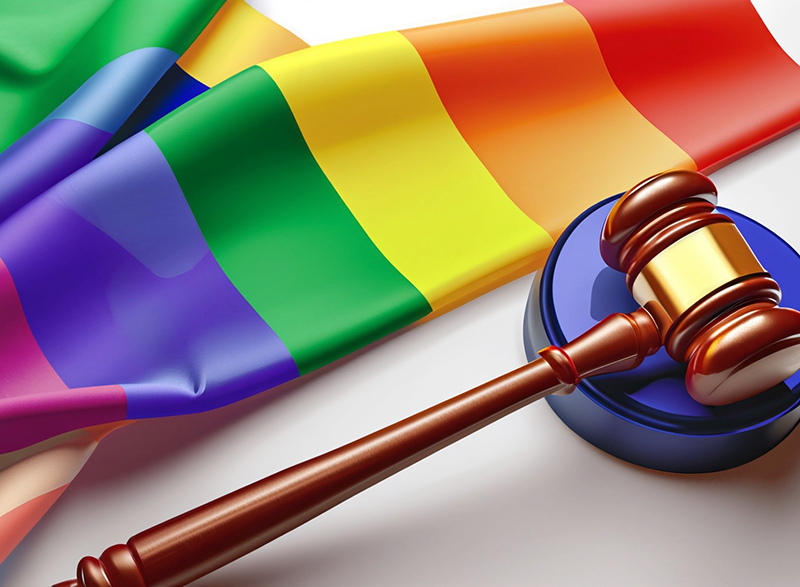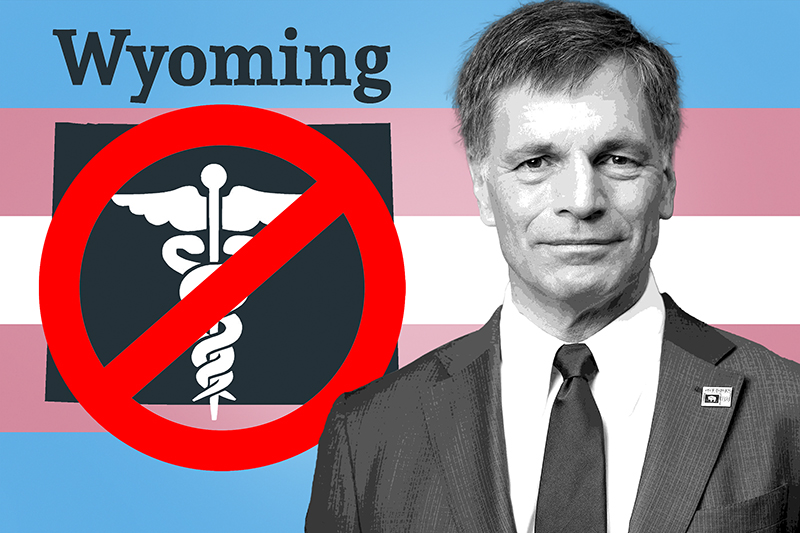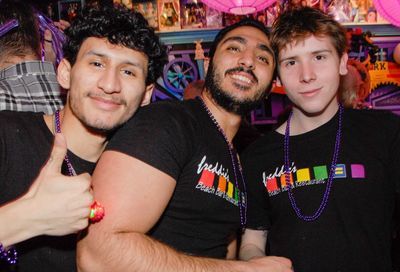LGBTQ Advocates Sue Texas Over Law Banning Drag
Critics argue the law should be struck down for being overly broad, vague, and violating the First Amendment.

A coalition of LGBTQ groups, businesses, and a drag performer have filed a lawsuit against the Texas Attorney General’s Office, various municipalities, and several county attorneys, arguing that the law violates the First and Fourteenth Amendments of the U.S. Constitution.
The lawsuit, brought by the American Civil Liberties Union of Texas on behalf The Woodlands Pride, Inc.; the Abilene Pride Alliance; Extragrams, LLC; 360 Queen Entertainment, LLC; and drag performer Brigitte Bandit. The suit argues that the ban on “sexually oriented” performances is overly broad, vague, imposes a prior restraint on free speech and expression, and constitutes viewpoint and content-based discrimination.
The plaintiffs in the case claim that their livelihoods have been threatened, as they stand to lose business and face threats to their personal safety if the law is allowed to go into effect. They have asked for a preliminary injunction to block the law from being enforced while the law’s constitutionality is being argued in court. They are asking the court to find the law is a form of unconstitutional censorship and to issue a more permanent injunction blocking state officials from pursuing prosecutions under the law.
The law, known as Senate Bill 12, does not specifically mention drag performances, but supporters have repeatedly said that one of the benefits of the law is that it will ensure minors are not exposed, directly or indirectly, to drag or other expressions of gender-nonconformity.
Under the law, which is set to take effect on Sept. 1 after being signed by Republican Gov. Greg Abbott earlier this year, prohibits businesses from hosting “sexually oriented” performances that feature nudity or so-called “sexual conduct” or appeal to the “prurient interest in sex” in public places, state-funded facilities, or venues where they can be viewed by minors.
Any establishment that wishes to host a drag show will have to impose an age limit prohibiting anyone under 18 years old from being on premises, and will likely have to card patrons before allowing them entry. Establishments that violate the law can be fined $10,000 per occurrence, while performers found in violation can face up to a year in jail, a fine of $4,000, or both.
The law defines “sexual conduct” as exhibition or representation, either actual or simulated, of sexual acts, genitals, sex toys, or “sexual gesticulations using accessories or prosthetics that exaggerate male or female sexual characteristics.”
Based on that definition, critics of the drag ban say that it is ripe for abuse, as police and prosecutors could choose to target any group of people they believe are violating the law, based on their own broad interpretations of the law’s language and their personal biases.
In addition to drag performers who wear padded bras or prosthetic breasts, others who may be prosecuted under the law include gender-nonconforming people who don’t conform to stereotypical clothing or grooming standards based on their assigned sex at birth, transgender people living in their true identity, and even non-LGBTQ performers, including actors or professional cheerleaders.
“This law is incredibly discriminatory. It’s yet another attack on LGBTQIA+ Texans by the legislature this year,” Brian Klosterboer, an attorney with ACLU of Texas, told Austin-based NBC affiliate KXAN.
“[The law] violates the First Amendment because it clearly and discriminatorily targets drag artistry and performance, but it’s also so incredibly broad and vague that it targets entire genres of performing arts that could be considered sexual by someone in any way,” Klosterboer said. “So it could impact Broadway musicals. It could impact karaoke nights at restaurants. It could really impact any kinds of performance or visual presentation.”
Supporters of the law believe the law is needed to protect minors from being exposed to sexually-tinged material or content, as well as gender-nonconforming dress or behavior, lest they be influenced to identify as transgender themselves.
After the bill passed in May, Lt. Gov. Dan Patrick, a Republican, bragged that SB 12 was one of his top priorities this past legislative session, arguing that the law is necessary to “push back against the radical left’s disgusting drag performances which harm Texas children.”
But critics of the law argue that conservatives are over-sensationalizing and misrepresenting drag as inherently sexual in order to score political points, especially among parents concerned about their children’s exposure to adult-themed entertainment.
Over the past year, LGBTQ rights organization Equality Texas has documented over 30 demonstrations throughout the state — some even resulting in violence — to protest drag performances, with many protesters claiming that such performances are inappropriate for minors and constitute a form of “grooming.” Houston’s sole lesbian bar was recently denied insurance coverage after insurers refused to underwrite the business for hosting drag shows, based on fears that anti-drag protests would lead to destruction of property.
“Texas queens and kings from across our great state have been targets of threats and misinformation as a result of the anti-drag law,” plaintiff Brigitte Bandit, a drag performer who previously testified against the law, told ABC News. “We must reject their attempts to divide us and continue to come together in our truth and power to support each other as Texans should. Our community will not be used as a scapegoat or a distraction by politicians who do not know who we are or what we do.”
Nearly identical laws in Tennessee and Florida targeting drag performances have been blocked by courts for being unconstitutional, overly broad, and vague, while a federal judge in Montana issued a temporary restraining order prohibiting state officials from seeking to enforce the law while its constitutionality is challenged in the courts.
“With this attack on drag, anti-LGBTQIA+ extremists have demonstrated their determination to dictate their morality through a policy that centers and uplifts their beliefs over all others,” Ricardo Martinez, the CEO of Equality Texas, said in a statement. “When I last checked, Texas was a free state and we all had the right to determine our own values, and make our own decisions, so long as we weren’t harming others.
“This fear-mongering about the art of drag is meant to deprive us of our humanity and encourages vigilantism,” Martinez added. “Anti-LGBTQIA+ extremist lawmakers sensationalize drag performers and venues regardless of the threat to our safety to distract from their negligent leadership that is harming our communities. It is no surprise that Texas has reported the highest number of violent threats to drag performers, venues, and attendees in the country.”
“The goal of this law is to chip away at our freedoms and eventually erase queer and trans existence from the public sphere,” Andrea Segovia, the senior field and policy advisor of the TENT, a transgender advocacy organization, said in a statement. “Our community and our art will not be silenced or erased. Our community has fought too long to exist to let a drag ban stop us from challenging gender norms, celebrating our identities, and preserving queer culture. We applaud the tenacity and grit of the suit’s plaintiffs. The plaintiffs of this case demonstrate true Texas values by standing strong for queer and trans rights.”
Support Metro Weekly’s Journalism
These are challenging times for news organizations. And yet it’s crucial we stay active and provide vital resources and information to both our local readers and the world. So won’t you please take a moment and consider supporting Metro Weekly with a membership? For as little as $5 a month, you can help ensure Metro Weekly magazine and MetroWeekly.com remain free, viable resources as we provide the best, most diverse, culturally-resonant LGBTQ coverage in both the D.C. region and around the world. Memberships come with exclusive perks and discounts, your own personal digital delivery of each week’s magazine (and an archive), access to our Member's Lounge when it launches this fall, and exclusive members-only items like Metro Weekly Membership Mugs and Tote Bags! Check out all our membership levels here and please join us today!


























